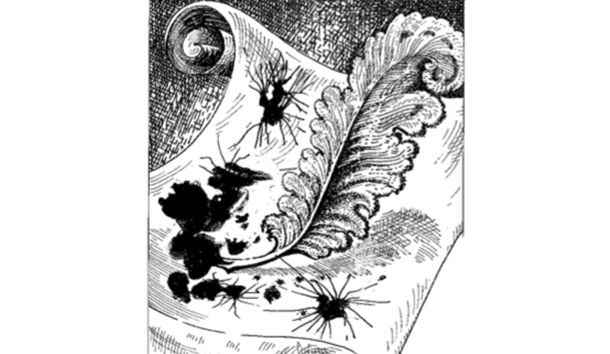As editor of the Literary Review, I am afraid I have formed rather a low opinion of the nation’s poets. Every week 20 or 30 offerings arrive through the post, and I often glance at them before handing them over to the magazine’s saintly, long-suffering poetry editor. With amazingly few exceptions, these “poems” are prosaic, confused, derivative, usually hard to follow, and often quite unambiguously meaningless. The general atmosphere is one of gloom, which would not matter if there were any compensating originality of perception or joy in the use of words. But the prevailing spirit of dullness and self-absorption produces no emotion stronger than boredom.
In Images of Africa (a volume compiled to raise money for the victims of famine), at least, our poets are to be seen in their best Sunday suits, with shining faces. They are assembled together for what everyone must agree is a Good Cause. They are not grubbing around for the £10 fee, which is what the Literary Review pays for a poem, and which I suspect is far too much. They are not even grubbing around for grants and bursaries from their local council or regional education authority, although I suppose their inclusion in this anthology will have done them no harm when next they apply. By and large, however, they are simply doing their best to help a continent which is beset by problems which are virtually unimaginable in our own society, where “poverty” is defined as being unable to keep up with the Joneses in the matter of Christmas presents for the kiddies. The problems of Africa are the problems of absolute deprivation: hunger and thirst, disease, lack of clothing and shelter.
Obviously, I would like to claim that, inspired by such a noble ideal, the offerings in this volume are noticeably superior to the general run of what is allowed to pass for “poetry” in England. Reading through the pages, I found five which seemed to possess some spark of vitality. In the light of what I am going to say about the others, it would be as invidious to identify them as it would be to name the one which, for the intellectual vacuity it revealed, its ignorance, its cynicism and maladroitness with words must surely qualify as one of the worst poems ever written in the English language. The purpose of this anthology is not to demonstrate the worst of what is being written in the English language under the name of poetry. Its purpose is to show the sort of thing being written under the name of poetry and only incidentally to demonstrate that even bad poets can have warm hearts. We must never waiver from our central perception that it is all in a Good Cause. If the book had appeared a few years ago, it might have saved some African lives. Even at this late stage, it can do no possible harm and might do some good.
English poetry may be in a sorry state, but Africa is in an even worse one. The difference is that English poetry is at the end of its history, while Africa is still at the beginning. Seventy years ago it was a brave and admirable thing for the poet to express himself in lines which did not rhyme or scan and were comprehensible only to those of his closest friends or most devoted admirers who were prepared to unravel such clues as they could find. Those were days of exploration and discovery, when there were important things to be said, and when the problems of Africa could engage the attention of such tortured geniuses as those of Kipling and Rhodes. What is left of this tradition, the tradition of Eliot and Pound, is a vague equation of obscurity with cleverness, of self-absorption with art, of triviality with elegance. The modern poet for a long time accepted that few people would want to read him and saw this as a tribute to his own superiority. Now, in the post-Modernist age, he would dearly like to be read but has lost the skill to please.
This book should perhaps be seen as a small monument to the death of Western culture. As such, it might well bring comfort to a continent which is experiencing physical tribulations of the sort which beset our own culture throughout its earlier history: famine, plague, war, and tyranny. Since the drought in Africa has receded, a new plague has started up, far worse over there than in its worst manifestations in New York and San Francisco. Perhaps the next volume of British poetry in this series will be devoted to the relief of AIDS in Africa. I look forward to it. Anything should be welcomed which gives the nation’s poets something to write about, something to make them feel they have a useful role to play.

Leave a Reply